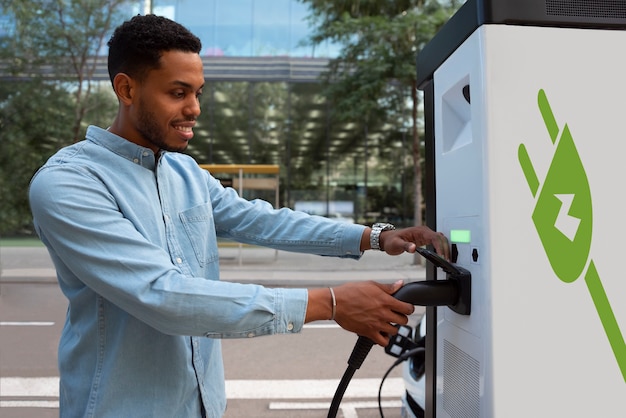
Electric vehicle (EV) manufacturers often highlight that while electric cars might cost more upfront, they save money in the long run due to lower maintenance costs and cheaper electricity compared to gas. Even though it’s true that EVs are cheaper over the lifetime of the car, several factors can influence how long it takes to offset the initial investment. One hidden cost catching new EV buyers off guard is state registration fees.
Where you live can significantly affect how much extra you pay to register an EV compared to a gas car. This article explores the reasons behind these higher fees, the costs involved, and whether future EV buyers should be concerned.
One key reason for the higher registration fees for electric cars is the gas tax that most states impose. This tax is often at least 20 cents per gallon—going up to 58 cents per gallon in states like California—and it is primarily used to fund road maintenance. When people stop buying gas, the revenue from these taxes decreases, leaving states in need of alternative ways to finance road upkeep. It seems logical to tax EV drivers, as their cars also use the roads.
The gas tax isn’t perfect, but it does mean that those who drive more pay more for road maintenance. Switching to a flat registration fee means everyone pays the same amount, regardless of how often they drive. For example, a person who works from home and only drives to the store occasionally would end up paying the same as someone who commutes for hours daily, despite the latter putting more wear on the roads.
Unfortunately, there isn’t a quick solution to this issue. States could tax electricity used at public charging stations, but most EV owners charge their cars at home or work, making it hard to track how much electricity is used for charging. Alternatively, states could track mileage, as Hawaii does through odometer readings during vehicle inspections. This might not be feasible in states like California, where car registration is often renewed online, and DMV wait times are already lengthy.
For now, imposing a high flat tax on EVs is relatively easy for lawmakers to implement, particularly given the perception that EVs are luxury items for the wealthy. However, this view is changing, and lawmakers will likely need to develop fairer solutions. Consumer Reports, for instance, found that Texas’s maximum justifiable fee for EVs should be $71 per car to offset lost gas tax revenue, yet the state charges much more.
EV registration fees vary widely by state and are likely to keep changing, considering the rapid growth in EV adoption. Nearly all states have some form of EV registration fee in addition to the standard car registration fee.
Some EV registration fees can be quite high. In Texas, for example, a new law signed by Gov. Greg Abbott raises the additional EV registration fee to $200 per year, compared to the $50.75 fee for non-EV owners. In Washington, the fee is even higher at $225 per year. Not every state charges as much, though. California has a sliding scale fee that can go up to $175 per year based on the car’s value. Hawaii charges $50 per year or $0.008 per mile as a road usage fee and plans to switch entirely to the per-mile fee starting in 2028.
Despite these costs, the benefits of owning an electric car far outweigh the downsides. Most gas car drivers spend more than $225 annually on fuel alone, not to mention the additional benefits like the potential $7,500 federal tax credit and lower maintenance costs for EVs.
You can break down the costs and benefits into two categories: those from owning an electric car and those from government-imposed fees or incentives. While added taxes can be frustrating, the long-term savings on maintenance and energy, along with possible tax credits, often offset these costs.
The landscape of EV registration fees is evolving rapidly. We might see more governments adopt a usage-based fee, like Hawaii’s model. Until then, EV owners might face higher registration costs, but they should remember that overall, they’re still saving plenty compared to driving gas-powered cars.